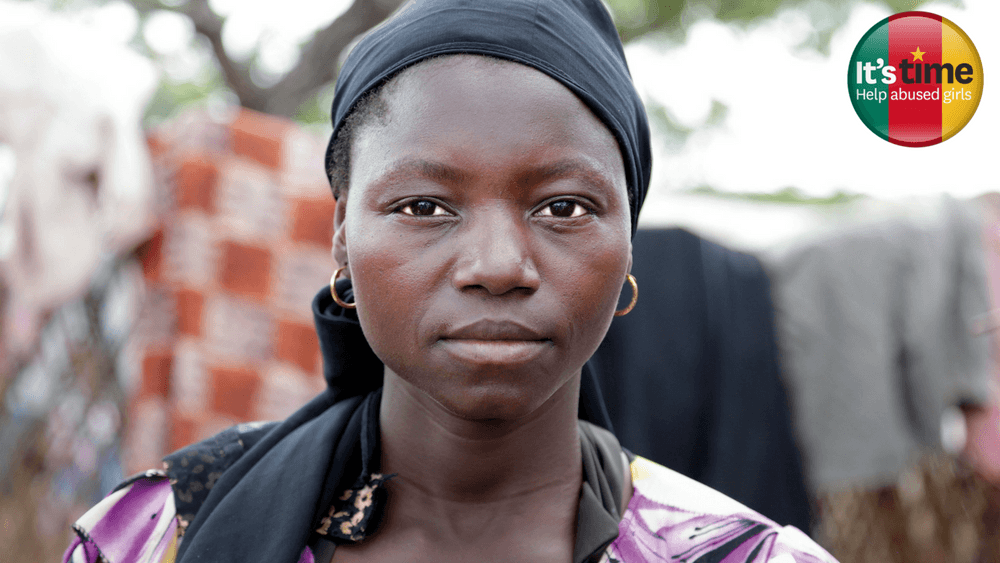Imagine you’re a girl on the cusp of puberty in the West African nation of Cameroon. In a country with a high rate of literacy, you would hope to be able to complete school without being raped and the risk of becoming pregnant.
Shockingly, though, children barely into their teens are all too often robbed of their innocence and end up having to make a horrible choice – to abort the baby or marry the abuser.
UNICEF estimates that about 20 per cent of girls aged between 15 and 19 are raped or sexually abused in Cameroon. This may be an underestimation because the issue is rarely talked about and the girls are stigmatised or even blamed. Some estimates put the figure as high as 40 per cent.
A survey by GTZ, a German NGO, found the average age of rape victims is 16, while the rapist is on average 25; 12 per cent of victims are less than 10 years old.
To make matters worse, parents and victims often don’t speak out, in an effort to avoid stigma and disgrace. Meanwhile, the rapists are rarely punished.
A pregnant girl will usually drop out of school and be ostracised by her family and community while being vulnerable to physical violence and sexually transmitted diseases. Many go on to have several children before the age of 30, bringing them up alone. Ill-equipped to protect their daughters from the same fate, many fall into the same destructive cycle.
It is against this background of horror that family members may iron the breasts of their unsuspecting pubescent daughters to stop them developing and attracting male attention.
Without warning, mothers, grandmothers and aunts pin the girls down and rub their budding breasts with hot objects such as grinding stones or pestles, which have been pulled out of fireplaces. The sessions, which are done in secret to avoid social stigma, can last 15 minutes or more and be repeated for months.
As well as the obvious physical damage such as burns, scarring and infection, the girls suffer lifelong psychological trauma, including internalising blame.
As abusive as it is, breast ironing is not an effective prophylactic against sexual abuse.
“One of the good news I got from there was that God accepts us the way we are.” – Leonie
Leonie’s story is particularly harrowing. Her three uncles raped her many times when she was only seven or eight.
“The second one used to tie my hands, close my mouth before abusing me sexually.”
When she became pregnant as a young single, the father wanted her to abort the baby but she refused. After she gave birth, she discovered the father was a married man.
“I was not the only one who was pregnant for him. We were four of us, his wife included. I discovered again that my best friend was also a victim of his abuses. She got pregnant for him two times and aborted them.”
Luckily for Leonie, she was introduced to the Esther Project, a programme run by Bible Society of Cameroon. It helps single mothers and victims of sexual exploitation heal from their trauma and live healthy, independent lives based on biblical principles.
As well as Bible study and prayer, the programme encompasses psychological counselling and training in income-producing activities such as bead-making, soap-making and bag-making.
“The Bible transformed me. The Bible is my life. It’s everything I need for better living – I can’t do any more without it.” – Leonie
When Leonie arrived at the project she feared God couldn’t accept her “as dirty as I was.”
“One of the good news I got from there was that God accepts us the way we are,” she says.
“And I was assured. I felt relieved and free from bondage, captivity and trauma. The Bible transformed me. The Bible is my life. It’s everything I need for better living – I can’t do any more without it.”
This year, the project is being extended into refugee camps to help women who have fled the deadly terror group, Boko Haram. Bible Society Cameroon also wants to start literacy classes in the Minawao and Wack refugee camps, where education levels are low. This year, the aim is to teach more than 1000 people to read but funds are urgently needed to provide life-changing Bible-based trauma healing and literacy.
Esther Project participants speak powerfully of the impact the programme has had on their lives.
“I was captivated by the quality of teachings and workshops in the project,” says Aimee*. “My life that was so sad has become more joyful. I have started appreciating life. Moreover, I have started reading and meditating on the Bible every day. My life has become light and peaceful … Jesus is my solution.”
Says Elise*: “Project Esther is the best thing that has ever happened in my life. I was in total despair when I came as a beneficiary in the project. That was when I opened the Bible for the first time.
“The seminars that were organised after that helped me to radically turn to God who is my father. My life has a new meaning.”
Make a Donation
To donate to help women like Leonie, Aimee and Elise, please call 1300 Bibles (1300 242 537) or visit http://biblesociety.org.au/cameroonep.



